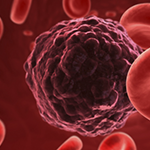One of the most active fields of clinical investigation in immuno-oncology today is augmenting responses to checkpoint [CTLA4 or PD-(L)1] inhibition therapy by re-sensitizing tumors that were initially unresponsive or had stopped responding to treatment. Continue reading
Tag Archives: Merck
Recent immune checkpoint study failures do not dampen enthusiasm for the future
Immune checkpoint inhibitors are simply cancer wonder drugs about which we are learning more each day. Because they don’t work optimally in many patients and some even hyper-progress, the goal is to determine ways to expand their effectiveness to more patients. As such, the number of clinical studies with checkpoints and checkpoint combinations continues to grow.
Immune checkpoint inhibitors act by blocking the abrogating phase of the immune response that is necessary to prevent autoimmune disease – by prolonging the immune response against cancer, a more robust and prolonged immune response, which is required for effective cancer therapy, is achieved with checkpoint therapy. Continue reading
TIGIT, a CTLA4-esque Immune Checkpoint for Cancer
Immune checkpoint-directed therapy is producing unprecedented clinical results in many patients. So much so, that the FDA recently reversed its longstanding policy or approving cancer drugs based on site of origin, to the presence of a biomarker (microsatellite instability (MSI-H) or mismatch-deficient repair (dMDR) as the indication for therapy with pembrolizumab (Ketruda), and PD-1 blocker. Cancers expressing MSI-H or dMDR mutate at a rapid rate, presenting novel epitopes to the immune system, which is readily mobilized against them so that tumor infiltrating T-cells are reliably present. Blocking the PD-1/PD-L1 pathway in this context allows for prolongation of the immune response and better clinical results. Continue reading

DNAtrix and Merck Phase II Collaboration of Oncolytic Virus + Keytruda for Glioblastoma
DNAtrix and Merck announced a collaboration to combine oncolytic virus therapy and PD-1 inhibition – the two companies will collaborate in phase II clinical trials on a therapy to treat glioblastoma, an especially deadly cancer for which there is no cure. Continue reading

Cancer Immunotherapy – Combining Anti-CCR4 & Anti-PD-1; and CEACAM1 (TIM-3)
A collaboration between Bristol-Myers Squibb and Kyowa Hakko Kirin to test a combination of Kyowa’s Poteligeo (mogamulizumab), an anti-CCR4 antibody, and BMS’ Opdivo (nivolumab) in a Phase I/II trial in advanced or metastatic solid tumors was announced. Also, Merck announced the acquisition of cCAM Biotherapeutics for $605MM for its CM-24 monoclonal antibody that target CEACAM1. Continue reading

Entinostat Doesn’t Just Restore Sensitivity to Aromatase Inhibitors
Entinostat is currently in a Phase III trial in combination with Aromasin (exemestane – aromatase inhibitor that blocks the synthesis of estrogen) in patients with metastatic breast cancer who have recurred following treatment with an aromatase inhibitor. Continue reading

Merck Acquires OncoEthix for Novel MYC Blocker
Last week, Merck acquired OncoEthix at a price of $375 MM for OTX015, a synthetic small molecule which targets the BET bromodomain proteins 2, 3, and 4 (BRD2/3/4). Continue reading

Cancer Immunotherapy Projections – Immune Checkpoint Inhibitors lead the way
The worldwide market for cancer immunotherapies is anticipated to grow from $1.1B in 2012 to $9B in 2022, that equals a 23/8% annual growth. Leading the growth are the immune checkpoint inhibitors.

